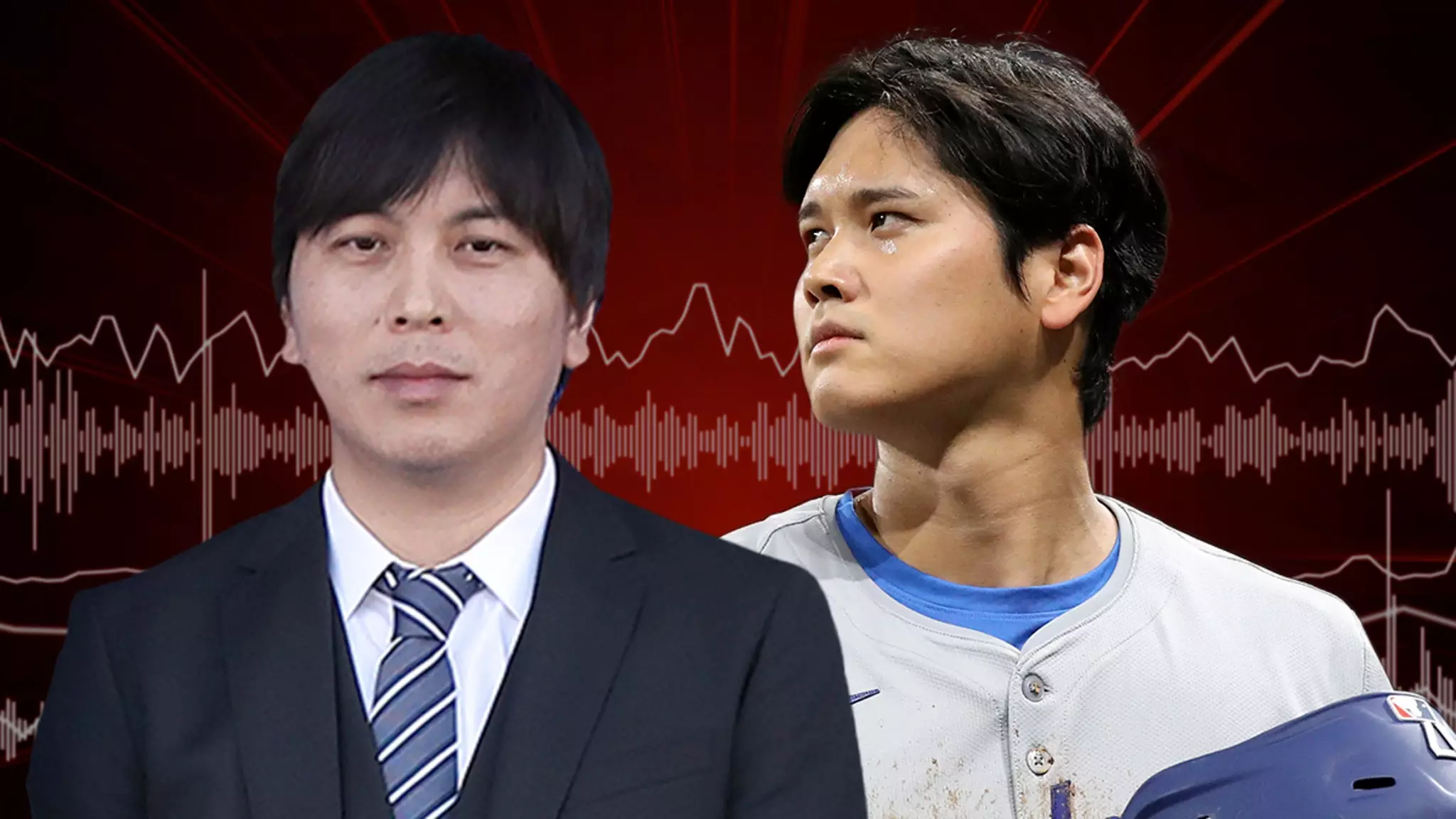In an extraordinary turn of events, federal prosecutors have unveiled shocking evidence that sheds light on a fraudulent scheme perpetrated by Ippei Mizuhara, the former interpreter for MLB sensation Shohei Ohtani. The gravity of the situation is underscored by the release of audio recordings that capture Mizuhara impersonating Ohtani during a phone conversation with a bank in a brazen attempt to siphon $200,000 from the star athlete’s account. This alarming case serves as a reminder of how trust can be grossly misused and how vulnerability can lead to severe consequences.
The confrontation begins in a three-and-a-half-minute phone call, where Mizuhara confidently presents himself as Shohei Ohtani. Immediately, the bank’s operator asks for his identity, to which Mizuhara quickly responds, “Shohei Ohtani.” The ease with which he adopts this identity is unsettling, particularly given the extensive knowledge that accompanies such a persona. Mizuhara attempts to convince the operator that he needs to wire a significant sum for a friend involved in a car loan, a tactic that could easily raise red flags for anyone with a discerning eye.
Throughout the call, Mizuhara’s ability to answer several verification questions poses significant challenges for the bank. He accurately shares a six-digit access code and fabricates plausible details about the funds’ intended use. The lengths to which he goes to impersonate Ohtani demonstrate not just cunning but also a complete disregard for the ethics surrounding his position—betraying both a friend and a figure who placed trust in him.
Motivation Behind the Deceit
What prompted Mizuhara to engage in such deceptive practices? The allegations state that he utilized Ohtani’s funds to settle considerable debts accrued through gambling—a vice that often entraps individuals, leading them down a path of desperation and betrayal. The notion that Mizuhara has siphoned millions over the years from Ohtani is a shocking revelation that tarnishes not only Ohtani’s personal and financial life but also the image of integrity that many associate with his professional demeanor.
Mizuhara’s admission of guilt, leading to a plea deal in June, highlights a broader conversation regarding the potential pitfalls faced by high-profile individuals surrounded by people they trust. The fallout from this scandal is likely to linger in the professional world of sports and beyond, raising questions about the need for transparency and safeguards for athletes who can often become targets of exploitation.
As the legal proceedings unfold, the federal prosecutors have called for a 57-month prison sentence for Mizuhara—an action that underscores the seriousness of his crimes. It’s a poignant reminder that betrayals rooted in trust can have far-reaching consequences. The sentencing hearing is scheduled for February 6, signaling a critical mark in this case that will determine the repercussions of Mizuhara’s actions.
The Ohtani-Mizuhara saga is an unsettling account of betrayal that resonates deeply within the sports community. It emphasizes the importance of vigilance against exploitation, shedding light on the vulnerabilities even celebrated athletes face when navigating their professional lives. As the dust settles on this scandal, one cannot help but reflect on the profound impact of trust—a double-edged sword that can either forge lasting relationships or catalyze devastating outcomes.

